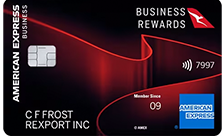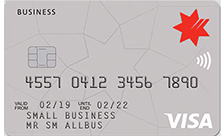What is a charge card?
A charge card is a payment card that operates similarly to a credit card but doesn’t charge interest. Instead, the card’s balance must be paid off in full each month.
- You can use a charge card for payments in Australia and overseas just like you can with a credit card.
- Charge cards also come with most of the same fees, features and rewards as credit cards, although there is no balance transfer option.
- Unlike a credit card, a charge card doesn’t have a fixed credit limit. Spending is approved based on the cardholder’s payment and credit history, as well as their capacity to pay off the card balance (i.e. their income or revenue in the case of a business).
- In Australia, charge cards are primarily used by businesses, although there is one notable option for consumers – the perk-heavy but pricey Amex Platinum Card.
Money.com.au’s credit cards and payments expert, Brad Kelly, says charge cards have some unique advantages for businesses over business credit cards.
Expert's view on charge cards

Brad Kelly, Credit Card Expert
"The biggest benefit is that a charge card is not a liability on your balance sheet, it’s an expense. If you are tying up your balance sheet with credit card liabilities, it reduces your working capital. That’s the fuel that runs your business. A charge card doesn’t do that, which is something a lot of businesses don’t realise. It's a very efficient utilisation of your balance sheet, as long as you pay the bill off every month."
Brad Kelly, Credit Card Expert
Charge card vs credit card: What's the difference?
The main differences between a charge card and a credit card relate to credit limits and how interest applies or does not apply to spending.
With a credit card, there is a set credit limit and interest is applied to the card’s balance after the interest-free period. With a charge card, there is no set credit limit and no interest is charged, as the balance must be repaid in full within the card’s cashflow period.
The table below summarises some of the key differences between a charge card and a credit card.
| Charge card | Credit card | |
|---|---|---|
Purpose | Can be used for payments online and in-store, both in Australia and overseas, with transactions paid off at a later date. | Can be used for payments online and in-store, both in Australia and overseas, with transactions paid off at a later date. |
Who uses them? | Primarily used by businesses but available to individuals too. | Used by businesses and individuals. |
Credit limit | Flexible spending power, also known as no-pre-set spending limit | Each card has a set credit limit. |
Days to pay off purchases | Charge cards come with ‘cash flow days’ – 55 days is the max available. | Offers ‘interest-free days’ which is the time period after a transaction is made before interest applies. |
Repayment options | The card balance must be paid off in full every month (unless there is a ‘flexible repayment plan’). | A minimum repayment must be made each month but cardholders can ‘revolve’ their balance from month to month. |
Interest | There are no interest charges but fees apply if the balance is not paid in full. | Interest is charged on any outstanding balance beyond the card’s interest-free period. |
Rewards | The card can usually be used to earn rewards points and access other perks. | Some credit cards offer rewards and perks, but there are also basic cards with no fees. |
Pros and cons of a charge card
Pros
- No interest charges
- Flexible spending power, also known as no-pre-set spending limit
- Offers the same rewards and perks as credit cards
- An expense (not a liability) on company balance sheet
Cons
- Usually a higher annual fee
- Fees apply if balance is not cleared every month
- Limited number of options available in Australia
- Requires discipline to avoid overspending
If you don’t repay your charge card balance in full and on time, a late fee will apply. With Australia’s main charge card provider, Amex, the fee is 3% of the overdue amount or $20, whichever is higher.
What do you get with a charge card?
This very much depends on the charge card you choose, but the average charge card typically offers more perks and features than the average credit card.
According to Brad, this is because charge cards are aimed at business and higher-income customers who spend a lot, are prepared to pay a high annual card fee, but expect a lot in return.
For example, analysis by Money.com.au found that all but one of the charge cards on our database offer the ability to earn rewards points. By comparison, only 54% of credit cards offer rewards points (the rest being basic low fee or low rate credit cards).
But you pay for the extra perks. The average annual card fee among the charge cards on Money.com.au’s database is $523 compared to around $135 for a credit card, our research shows.
Charge card features and perks
Most charge cards offer features like:
- Reward points for every $1 spent (either linked to the card provider’s own reward program or a linked frequent flyer credit card scheme)
- Bonus reward points when you sign up
- Access to exclusive discounts, offers and credits for participating retailers, hotels and restaurants.
- Option to have extra cards for employees (or family members if it’s a personal card)
- Integration with business accounting software and ATO-compliant card statements
Who uses charge cards in Australia?
Charge cards are primarily used as a source of finance for small business owners and large corporate customers to manage spending. There are 14 business and corporate charge cards on the market in Australia, but only one consumer option.
However, according to Brad there can be advantages to having a charge card for personal use due to the flexibility.
“The key is that there's no pre-set spending limit. The amount of money that you can spend is mainly determined by your ability to repay it,” Brad explains.

Brad Kelly, Credit Card Expert
"A credit card is a lot less flexible because of the credit limit. Let's say, for instance, you take a family trip to Europe and you’re renting cars, booking hotels and eating out a lot. You will max out that hard credit card limit in a flash. With a charge card, it’s more likely the card provider will work with you and wave through a higher-than-usual spend in a month if you need it, as long as the provider is confident you can afford it."
Brad Kelly, Credit Card Expert
By contrast, extending your limit on a credit card usually requires a credit application and additional credit check. This could have an impact on your borrowing capacity if you need to apply for another credit product (e.g. a home loan) down the track.
Brad says this flexibility is a major part of the growing appeal of charge cards and why the main providers have been able to grow their market share in Australia in recent years.
Fun fact: The single largest card customer in the country is the Australian Government. It says it uses Diners Club charge cards to pay for the likes of airfares, accommodation and car rental.

Charge card case study
Using a charge card to cover fluctuating business expenses
Payments expert Brad Kelly is himself a small business owner. Here's how he uses his charge card.






